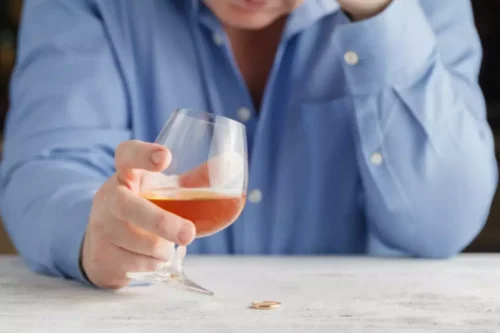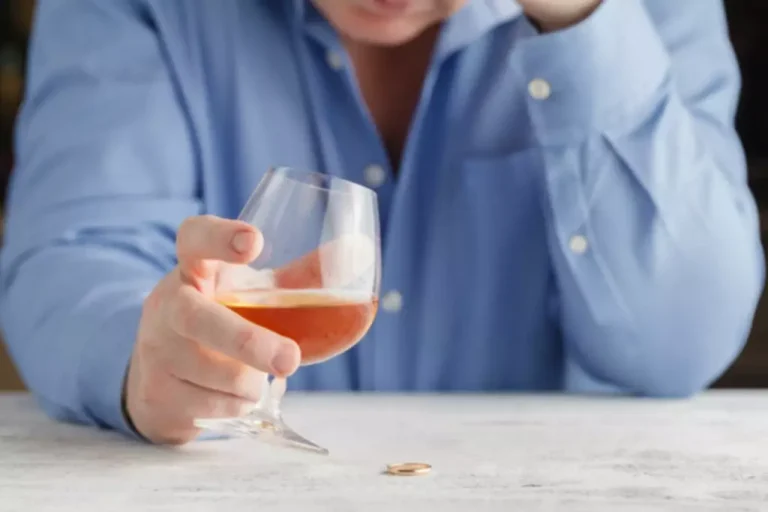
If they continue to engage in the same unhealthy patterns, you could revisit the conversation later. It’s not uncommon for people to get defensive when others point out their unhealthy drinking habits. Your loved one might deny the problem, deflect, or get mad at you.
Women and Alcohol
The rest is excreted through the lungs, kidneys, or in sweat. While fear and shame lead many to underreport alcohol use, providers can foster honesty by creating a safe space, asking specific questions, and focusing on health impacts. Honest disclosure is vital for optimal care, and even small reductions in alcohol intake can significantly improve health outcomes.
More Millennials and Gen Xers are getting colorectal cancer. Even young adults should watch for these 7 symptoms

Lowered inhibitions can lead to poor choices with lasting repercussions — like the end of a relationship, an accident or legal woes. Each of those consequences can cause turmoil that can negatively affect your long-term emotional health. “The good news is that earlier stages of steatotic liver disease are usually completely reversible in about four to six weeks if you abstain from drinking alcohol,” Dr. Sengupta assures. Heavy drinking can also lead to a host of health concerns, like brain damage, heart disease, cirrhosis of the liver and even certain kinds of cancer. While the percentage of older adults who are binge drinkers has increased slightly, the growing number of older adults who are in this age group will double in the next 40 years. While you can’t control how other adults handle alcohol, if you’re the parent of a teen who binges, you’ll want to take action.
- You might wonder why you always seem to make the same mistakes.
- If you drink every day, or almost every day, you might notice that you catch colds, flu or other illnesses more frequently than people who don’t drink.
- Most American adults drink alcohol at least occasionally, but about 1 in 4 knock back several drinks in a short period of time at least once a year.
- But if you don’t want to take that big of a step, there are ways to drink more responsibly.
Public Health
You’ll start to feel the effects of alcohol binge drinking effects within 5 to 10 minutes of having a drink. Binge drinking is defined as men consuming five or more drinks within about two hours. For women, it’s defined as consuming four or more drinks within about two hours. Binge drinking has many effects on your body, both over the short and long term. While drinking alcohol is normalized socially and is legal above the age of 21 in the United States, it can still have harmful impacts on the body. The main indicator of a binge-drinking episode is having four to five drinks (or more) within two hours.

Deaths from excessive alcohol use
If you already drink at low levels and continue to drink, risks for these issues appear to be low. Pursue new interests with them that don’t involve drinking. Instead of inviting your loved one out for drinks at a bar, invite them over to work on a crafting project or go out and see a movie. Be mindful of how often you engage in activities that could involve alcohol, such as local trivia nights or sports events. Try to make those types of activities take a backseat to other hobbies. For example, they might decide to stick to one drink per occasion or no more than three drinks per week.
Associated Data
The 2015 National Survey on Drug Use and Health (NSDUH) found that 86.4% of people age 18 or older reported alcohol consumption at some point in their lives, and 56% reported drinking in the past month 3. How these shifts in bacterial strains, load, and metabolites contribute to organ injury remains to be fully elucidated. These changes could produce chronic and sustained activation of immune responses that, in turn, could lead to immune exhaustion and dysfunction. Some binge drinkers only drink once a week; others even less frequently. In fact, abstaining from alcohol between sessions of excessive alcohol consumption is a key characteristic of binge drinking. You may think that because you’re not physically dependent on alcohol and don’t have to drink every day that your drinking isn’t harmful.
The trillions of microbes in your colon and large and small intestines are critical to proper digestion. They also help fend off inflammation and support healthy metabolism. That’s because your body already has processes in place that allow it to store excess proteins, carbohydrates and fats.

You might start the night with the intention of drinking one or two beers. An hour or two later, you’re more intoxicated than you wanted to be. Although drinking this much might not seem like a big deal in the moment, you may regret your choices later. You might struggle with the immediate https://ecosoberhouse.com/article/why-alcoholism-is-considered-a-chronic-disease/ physical consequences—headache, nausea, weakness, poor sleep quality. Or perhaps you later feel shame and embarrassment about things you said and did while under the influence. You might wake up with questions like, “Did I do something stupid to endanger my loved ones?


However, alcohol is a depressant, so it will ultimately make you feel even worse. One recent study by researchers at the University of California at San Francisco found that 21 binge drinking sessions over seven weeks was enough to cause symptoms of early stage liver disease in mice. Binge drinking is excessive alcohol consumption on one occasion.
How does binge drinking affect your health?
However, care providers must still balance the overall risks and benefits of alcohol use when counseling their patients on their level of alcohol intake. Additional research is needed to better recognize the differential effects of binge, chronic, and binge-on-chronic patterns of alcohol consumption. Animal models that reflect these patterns of alcohol exposure are needed. There is conflicting data regarding the effects of alcohol exposure in utero when there is no evidence for FASD.
